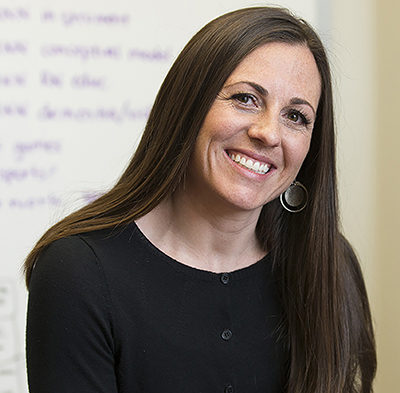By Addy Hatch, College of Nursing
Small-town pharmacists dispense medication, of course. But they might also provide clinical services like immunizations and blood pressure screenings; consult on health issues; or even act as a de facto benefits or case manager for customers.
Pharmacies clearly are important to health care in rural communities. Yet nearly 500 rural communities in Washington lost their only retail pharmacy between 2003 and 2013.
Janessa M. Graves, an assistant professor at the Washington State University College of Nursing, is studying the issue.
“It’s a worrisome trend, and yet this is something that hasn’t been looked into very closely,” she said.
Graves’ research is specifically looking at retail pharmacies that serve people covered by Medicaid, the state-federal insurance program for low-income children and adults and people with disabilities. More children are covered by Medicaid in Washington’s “nonmetro” counties than by private insurance, and statewide, 91 percent of community pharmacies accept at least one Medicaid insurance plan.
Laura Forman, a WSU College of Nursing Honors student, assisted Graves on the first part of the research. They presented initial findings at a rural health conference in Spokane recently.

Graves said access to a community pharmacy is especially important in rural areas, which have trouble attracting health care providers.
“Where there’s a dearth of health care, a pharmacy can play an important role,” she said.
But some large counties have only a handful of retail pharmacies. Ferry County, for example, has a total area of more than 2,200 square miles, but has only a couple of retail pharmacies that accept Medicaid reimbursement. There are three in Lincoln County and two in Pend Oreille County. Spokane County has 93 such pharmacies, according to preliminary research by Graves and Forman.
Rural counties are sparsely populated, so the number of pharmacies per 10,000 residents is higher in Ferry and Lincoln counties than in Spokane County.
But those numbers don’t reflect challenges like driving long distances, over sometimes dangerous roads, to get to a pharmacy. And while mail-order pharmacies might be an answer for medications used to treat chronic conditions, they aren’t useful for filling prescriptions needed immediately, like an antibiotic.
The research is ongoing. Graves would like to know whether people in rural areas are driving long distances to fill prescriptions, and what the decline in rural pharmacies means about access to health care. She said the research could suggest potential solutions, like targeted policies to raise Medicaid reimbursement rates in rural areas, or other measures to encourage rural pharmacies to continue to accept Medicaid.
Graves was drawn to the subject because her research tends to focus on health systems and data. Plus, she grew up in a rural community and lives in one now and said, “I care a lot about rural communities.”
Contact:
- Addy Hatch, communication director, WSU College of Nursing, 509-324-7340, addy.hatch@wsu.edu






